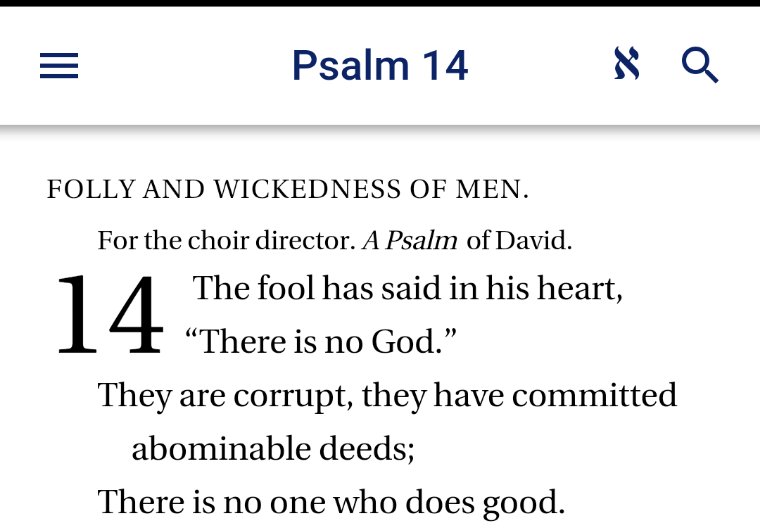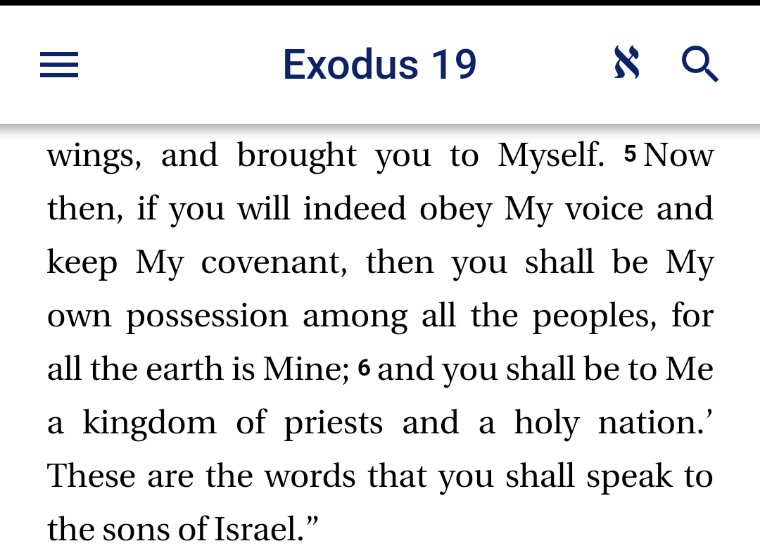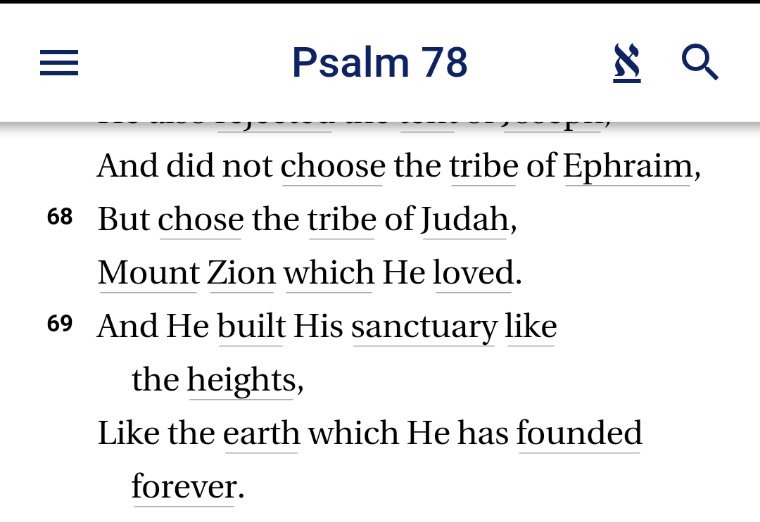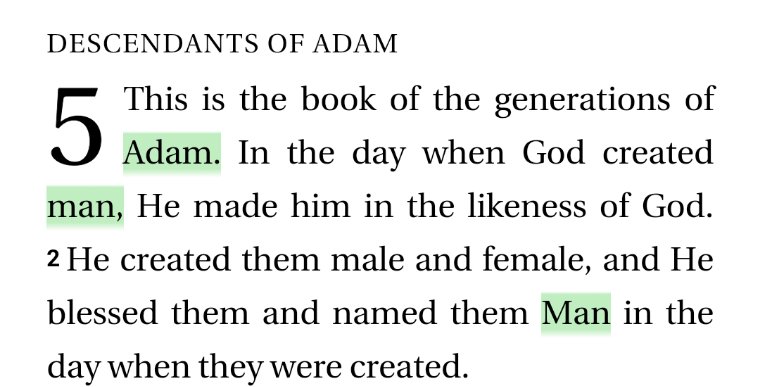"And the king of Assyria sent Tartan and Rab-saris and Rabshakeh" (2 Kings 18:17 ASV). "The king of Assyria sent his supreme commander, his chief officer and his field commander with a large army" (2 Kings 18:17 NIV). Why we need comparative ANE studies.
"Myths" are stories about gods and explanations for how the world works. A Babylonian would not have considered a myth as fanciful or fictional, though not the same as a court chronicle.
Katz: "The Sumerians seem to have perceived mythological reality as historically actual."
"Myths are always set in the past, and they always refer to the present. What they relate about the past is supposed to shed light on the present."
Aside: You too can be elevated to the head of the pantheon. Just negotiate w/ the other gods, defeat the chaos monster, & lay out the cosmos w/ its corpse. So basically just like the hiring of an American CEO ...
Aside: The Dream of Nabonidus on the Sippar Cylinder ... "Many many fickle parsons."
Sennacherib Prism: "had Hezekiah locked up in Jerusalem like a bird in a cage." Didn& #39;t get him, did you, Sylvester? (2 Kings 19)
ANE: No sacred-secular, natural-supernatural dichotomy. Only spiritual & physical which meant less to them than to us.
"The first gods created are primordial cosmic gods. Since the forces of nature are expressions & manifestations of the attributes of deities, cosmogony & theogony become intertwined as the natural world comes into being w/ the gods who embody the various elements of the cosmos."
"In the ancient world something came into existence when it was separated out as a distinct entity, given a function, and given a name." [See Gen 2?]
"The gods exist on earth only thru their functions. & #39;On earth ... the gods live only in images, in the king as an image of god, in cult images in the temples, and in sacred animals, plants and objects.& #39;"
"The cosmic dimension of the divine ... [also] ... referred to specific complexes of actions, traits, attitudes, and qualities that were interpreted as cosmic phenomena & #39;in action& #39; and in which humankind also participated. Nut was not so much the sky as what the sky did."
"The birth of the gods does not relate to their physical or material existence. It relates to their function and roles because their birth is connected to the origins of natural phenomena."
"The designation of a function is not necessary for a god to exist, but it indicates the importance of the assigned function in the understanding of the nature of the god."
Per the above, Walton notes the divine name "Yahweh" expresses an identity linked with a function or role. In Ps 14 (cf. Ps 53) the "fool" has drawn the conclusion that God will not act against his corrupt ways. "Existence" can be seen in relation to the Deity& #39;s activity.
In Exod 3:13, Moses is not expressing ignorance of the identity of their ancestral deity (it& #39;s not unusual for a single deity to have many different epithets & titles). His question concerns which identity of the deity is pertinent to the mission on which he is being sent."
He saying that the statements do not suggest the patriarchs were unaware of the name Yahweh, but that God had not yet acted in ways that would manifest the identity bound up in the name. Yahweh had yet to fulfill his name& #39;s role in their experience.
Walton says Yahweh& #39;s name reflects one who creates in the sense of one who enters into a relationship. It thus lays the foundation for the key concept of a covenant god, for this engendering becomes synonymous with choice (election).
Also, besides naming & giving a function, creating often involves separating - so here Israel is separated out, given a function (Exod 19:5-6), and in that way Yahweh is causing them to exist.
Walton is comparing ANE divine assemblies. He sees biblical evidence in Pss 29; 82; 89; 1 King 22; & Job 1-2. Also the "Us" of Isa 6, which includes the "Us" of Gen 1:26; 3:22; 11:7. This explains opaque passages that people mistook for trinity in the pluralities.
"Every aspect of what we call the natural world was associated with some deity in the ancient Near East. The result is that the term & #39;natural world& #39; would be meaningless or nonsensical to them."
"The cosmic deities were manifest in that element of the cosmos with which they were associated, and had some jurisdiction there."
"Sun gods were active in and through the sun - but they did not create the sun, at least not in the material terms that we are used to thinking in. In the ontological concepts [discussed above] existence is much more closely bound with function and role."
"The birth of the sun god is coterminous with the origin of the sun (neither functions/exists without the other) ... Though the god is the controlling party in the functioning partnership, the god has no existence separate from, outside, or above the sun."
"The sun is the manifestation of the god and the expression of the god& #39;s attributes. The god is the power behind the sun ... Hence, cosmogony, cosmology, theogony, and theology are all inextricably interwined."
OK, Walton has explained. If this thought works for "natural" objects/functions, does it work for nations, communities, churches, families, etc.? Are the "angels" behind a nation or church in apocalyptic literature coterminous w/ that nation or church? Paul suggests so.
Per the above, the coterminous relationship of Powers/idols/gods/angels as the inner spirituality of any physical manifestation of Power was the reading of Walter Wink on Paul& #39;s theology.
H.C. Brichto notes the biblical religion demythologizes creation itself, even while it echoes with the constructs of pagan mythology.
The gods were not restricted to certain geographic areas. They were based in a particular area because that& #39;s where their temple was (where they dwelt), and where they were worshipped (where there needs were met) and recognized. They could extend their territories.
Aside: If the Hebrews understood ontology was functional (meaning existence is defined by the function one has), & if this understanding reflects the self-revelation of God, then it both supports & rejects ESS. The Son functions as the sent one, but that function is his being.
"Assyriologists have proposed that in the ancient world one& #39;s identity was found in exterior relationships, rather than in an interior sense of one& #39;s being."
"If ontology were defined in relation to one& #39;s function and actions, and if & #39;self& #39; were defined as largely exterior, then personal attributes (whether divine or human) could only be discerned at the level of one& #39;s actions - that is, they could not be seen as abstractions."
Walton notes the lack of orthodoxy in the ANE. In the polytheistic system, gods were added all the time. He says the scenario of Jonah& #39;s message from Yahweh to Nineveh and their response is quite probable. Acknowledging foreign gods was common.
Per the above, Walton says that Yahweh& #39;s insistence that no other god be recognized is very different from other deities and the Israelites had difficulty adjusting.
Walton is noting how monotheism inevitably leads to ethical and moral demands. That was one thing that attracted Romans to Yahweh worship as converts during the Diaspora.
The existence of an idol had to be approved by the god. A ritual was performed to actualize the presence of the god in the temple. The image was not the deity; the deity was the reality that was embodied in the image.
Aside: The lack of an idol or image of Yahweh must have been extremely odd at the time. Though it makes logical sense in hindsight. Also, humans *are* the image of God placed in the "temple" of the cosmos. A theological & ethical revolution.
V. Hurowitz has done a comprehensive analysis of the common ANE ideology of sacred spaces as portals through which the gods transversed. They featured a temple, a ziggurat, and a garden.
The ziggurat supported the stairway, which was the visual representation of that which the gods used to travel between realms. The garden symbolized the fertility provided by the deity. The gardens were watered from the fertile waters that flowed from temples.
"The idea of four streams flowing from the temple or palace to water the four corners of the earth is represented graphically in a couple of places."
"A temple on earth was considered only a type of the larger, archetypal cosmic temple ... The temple is considered the center of the cosmos, and in itself a microcosmos."
Walton: The description of Eden is cosmic geography. Though the 4 rivers were real, their description refers to their cosmic role. Strictly speaking, the garden was not made for man but was God& #39;s (Isa 51:3; Ezek 28:13). It was where God dwells and where man should worship him.
The garden was understood as a sanctuary. The presence of God was the key to the garden. His presence is seen as the fertile source of all life-giving waters.
"It is also the source of all the creative forces that flow forth from the divine presence, that energize & give life to the creation in a constant, unceasing outflow of vivifying power."
Ezek 47:1-12 shows life-giving waters flowing from the Temple. Also Zech 14:8; Ps 46:4; Rev 22:1-2.
Aside: Per the above, I think John the Elder wrote Rev & his Gospel. Note John 4 and the living water. John works his story as a recreation of Eden and the divine presence in Jesus, but Jesus is also portrayed as a sanctuary/Temple (1:14 [skēnoō]; 2:21). Other NT do so too.
Aside: A few months ago I worked on an article arguing that monotheism, election, & geography meant that the cosmic impact of events portrayed in apocalyptic symbolism were more than just metaphoric exaggerations. They describe "spiritual" realities of immense importance. 1/3
Preterists (even if I do say so myself) often dilute the symbolism of Jesus& #39; Olivet Discourse & Revelation, overlooking the "spiritual" impact (see Col 1:23; 2:15; 1 Cor 2:8 for the cosmic impact of the cross within the "spiritual" realm. 2/3
Therefore, perhaps monotheism, election, & geography might explain why Jesus& #39; work on the cross had the impact that it did. 3/3
A temple was was also the economic & moral center of the cosmos (see Mark 11:15-16?). It held a community together as well as the cosmos. It was the focal point of communal activity.
Walton notes that each of the seven visions of Zech 1-6 has some connections to the Temple.
The gods in their temples were cared for just so people would be graced with good harvests. The temple was the control center for order in the cosmos and that order needed to be maintained. Priestly rituals played a role in maintaining the cosmic order.
He notes many similarities & differences between the sacrificial rituals of Yahweh and other ANE gods.
Walton mentions corporate identity in passing.
He notes Yahwehism started as a family religion & emerged as a state religion over time, beginning w/ the exodus. It took on new dimensions w/ the development of the monarchy & the temple (a fixed cult center). Yahwehism is the only recognized example of this development.
Other ANE gods had "jobs" but Yahweh had a "plan". While justice was the responsibility of other gods, justice emanated from the nature of Yahweh. Unlike the recognized capriciousness of other gods, Yahweh is never portrayed as anything less than consistent.
There is no indication that the Israelite state religion viewed appeasement as related to divine whims.
Walton says that biblical history& #39;s focus on syncretism was a matter of state religion. Even in polytheistic societies, individuals & families were not obliged to honor state gods.
Aside: Due to the past hundred years of archaeology, comparative studies, historical research, & improved communication, we now understand the meaning of Scripture better than anyone since the original audience. The Scriptures are very perspicuous as long as you understand it.
Without revelation, people did not know what a deity wanted. They could only adhere to traditions & ride out the storm.
Babylonians did not have an introspective tradition. Subjectivity hadn& #39;t been invented. Individual identity was what one manifested in public - it was social. Identity was attained thru social context. Soul & self are external identity constructs rather than internal ones.
Egyptians had a "constellative" anthropology. If abhors isolation, solitude, self-sufficiency, & independence as symptoms of death, dissolution, & destruction. The individual is dependent on social coherence to maintain personal coherence.
Hebrews ... Their vitality connected to God. It remains something exterior. As with the ANE, piety was expressed by outward acts. Not an interior attitude but an exterior expression of oneself in acts that reflected the religious values of the culture.
Aside: Per the above, that appears different than the apparent interior focus of Jesus& #39; Sermon on the Mount. See also Gen 6:5.
Walton: By breaking with land, family, & inheritance, Abraham was also breaking all of his religious ties. Yahweh probably started out as a personal god, then a family religion, and that was the ground from which national religion eventually sprang.
Van der Toorn: "Religion, in Babylonian parlance, is "fear of the god" (palah ilim)." Not "the acceptance of propositions relating to metaphysical realities" but tangible in human kindness & dutiful observance of the cultic worship.
Aside: There are places in the OT where Yahweh expresses his disgust at sacrificial offerings by those who do so out of obligatory routine or while oppressing others.
Aside: One difference between Yahweh & other gods noted by Walton between, Yahweh expressly states he doesn& #39;t need their offerings. It& #39;s more about devotion than sustenance.
In the ANE, serving the god was about ritual and preserving the social order and the cosmos. In Israel, it was about following Torah, which showed how to love Yahweh & neighbor. "The high ideal of imitating the deity did not exist in any other ANE culture."
"Ethical behavior had its foundations in the nature of society, not in the nature of the gods."
Walton gives occasional asides on Israel. He says that the first commandment of the Decalogue disenfranchises other "gods" removing their claim to power. There is no pantheon. Yahweh works alone. He says that commandment three prevents "divine identity theft".
He notes that the Sabbath rest is not just about disengagement from a process of establishing order. It& #39;s about a deity taking his place at the helm to maintain that ordered and secure cosmos. I& #39;ve heard that interpretation before.
Divine rest is achieved after order-bringing creation, achieved in the temple (e.g., Eden/cosmos), characterized by ongoing control & stability.
"If ethical behavior has an exterior foundation, a person behaves ethically because of the consequences - rewards or punishments - that are built into the system, whether by Society or the gods ..."
"Disinterested righteousness can only be a viable option if a more abstract sense of righteousness exist. Though Job& #39;s friends encourage him to take the Mesopotamian path of appeasement (confess anything to restore favor with deity) ..."
"Job maintains his integrity demonstrating that he did possess an abstract interiorized standard of righteousness apart from a system of consequences." Wow.
"None of the Mesopotamian literature that deals with the pious supper shows this dimension of thinking ... They have no basis to proclaim their innocence, only they& #39;re ignorance and confusion."
The Mesopotamian sentiment towards the gods was one of fear rather than joyful exaltation. "The people thought the gods for protection and assistance, not for relationship."
"Israel shared the cosmic geography that was common throughout the ancient world. The difference was that the natural phenomena were emptied of deity. Rather than manifestations of the attributes of deity, they were instruments for his purpose."
Walton is continuously highlighting the idea that the ANE worldview - for humans, gods & creation - was a function-oriented ontology/cosmology. He notes this bypasses the questions that modern scholars often ask of the ancient world: Did they believe in "creation out of nothing?"
I& #39;d add, per the above, the ANE creation stories aren& #39;t answering the modernist questions of progressives & fundamentalists. To insist that the bible must answer YOUR questions or be deemed errant is hubris. I& #39;m looking at you too, conservatives.
Walton: chaos (precreation state) is the opposite of cosmos (the creation state; the ordered whole). J. Allen: "What lies outside the biosphere of earth & sky is not & #39;nothingness& #39; but a universe that is the antithesis of all that defines the world ...
"... It is infinite, where the world is bounded; formless and chaotic, where the world is shaped and ordered; inert where the world is active; and wholly uniform in substance (water), where the world is materially diverse."
The precosmic condition wasn& #39;t lacking matter, but order & differentiation. It was non-functional. Creation is about giving order, function, and purpose.
To the Egyptians, the primeval waters of the non-existent chaotic realm continued to be present in the sea, in the dark night sky, and even the desert - places without role or function.
In Genesis, the focus is not on creation as making things, but God establishing a continuum. In the ANE, function is a consequence of purpose.
Aside: So with the function-oriented ontology the functional aspects that establish being/existence are: name, separation, & role. See Gen 2:20-23.
Walton, following chapters on how a ANE temple was understood as a mini-cosmos, notes the construction of a temple and the construction of cosmos are often parallel.
He states that a god inhabiting his resting place is the equivalent to being enthroned. It is about taking up his role as sovereign ruler of the cosmos. The temple provides the symbolic reality for this concept.
Temple dedications last 7 days. The functions would be declared. Furniture and hangings declared. Priests installed. The image of the deity would be brought into the temple. Aside: In Genesis 1, the image is humankind. Think about that.
Aside (comical): Imagine a HGTV show like Property Brothers or Flip or Flop with ANE gods.
"This temple doesn& #39;t have the hanging gardens, but it does have four rivers flowing out, gold and bdellium and onyx stone, fruit trees (Don& #39;t eat from *that* one), and nice neighbors ... Yes, they are *naturalists* ..."
Aside: If you& #39;re reading this thread, you might feel unease about the ANE comparisons. It& #39;s okay. I& #39;ve been there. Just push thru it in faith to God & you& #39;ll come out the other side w/ stronger faith & greater appreciation for Scripture. 1/2
Before seminary, I was scared to pursue some religious truths for fear that my search would disprove my faith. When I began seminary (also reading Dale Moody), I learned not to fear the hard questions but to pursue it b/c all truth is God& #39;s truth. It strengthened my faith. 2/2

 Read on Twitter
Read on Twitter



![Aside: Per the above, I think John the Elder wrote Rev & his Gospel. Note John 4 and the living water. John works his story as a recreation of Eden and the divine presence in Jesus, but Jesus is also portrayed as a sanctuary/Temple (1:14 [skēnoō]; 2:21). Other NT do so too. Aside: Per the above, I think John the Elder wrote Rev & his Gospel. Note John 4 and the living water. John works his story as a recreation of Eden and the divine presence in Jesus, but Jesus is also portrayed as a sanctuary/Temple (1:14 [skēnoō]; 2:21). Other NT do so too.](https://pbs.twimg.com/media/E0BylTOXoAIjdmB.jpg)




